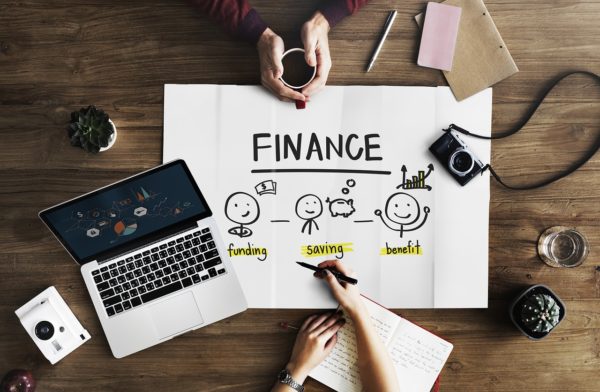
Entrepreneurship is a demanding gig. About 19 percent of business owners work more than 60 hours per week. Also, 82 percent work more than the standard 40 hours a week. On top of other responsibilities, including eating, sleeping, and spending time with the family, there’s not much time to manage your personal finances. However, every entrepreneur should prepare their personal finances.
Sure, you probably got involved with entrepreneurship as a route to building a stable, ideally wealthy financial future. But, if you spend so much time on your company’s finances and growth that you completely neglect your own personal finances, you could compromise your own future. And, maybe your business will also suffer along with it. Here’s why every entrepreneur should prepare their personal finances.
Thinking Beyond the Venture
Why is it so important to think beyond your primary entrepreneurial venture?
- Recognizing income volatility. Even if you’re generating revenue from the start, that profitability will likely increase and decrease at irregular intervals. A variable income can make your personal finances much harder to predict and manage. You’ll need to dedicate at least a fraction of your attention to making it go smoothly. Paying yourself a salary can help compensate for this. However, you’ll still end up with less than a competitive market rate for your role.
- Keeping the home life stable. Planning and managing your personal finances can help build a stable personal life. You won’t have to worry about your bills or debts as much. Plus, you’ll be able to stick to a consistent budget. A stable home life can be a source of confidence and productivity while working. In other words, it can make you a better entrepreneur.
- Preparing for the worst. It’s also important to be realistic. The failure rate for new businesses is high. Even if you have a fantastic idea and a good team, there’s a chance you could end up without a source of revenue. Combine that with the fact that you’ll likely take on debts and risks when starting a business, and you could be left in an even more compromising position. Preparing your personal finances proactively can guard you against such an eventuality.
Overarching Strategies
There are many different categories of personal finance to consider. Before we get into those, let’s examine some of the most important long-term strategies. For example, here is how every entrepreneur should prepare their personal finances:
- Think long-term. Though many of your personal finance tactics will be focused on daily, weekly, or monthly actions, they should all be planned with intention to optimize for the long term. The further ahead you plan, the better; you’ll thank yourself in a few decades when it’s time to retire.
- Reduce external risk. Starting and running a business as your primary source of income is inherently risky. The last thing you need is inherent risk in other areas of your life. Though some risk is unavoidable, part of your job is to reduce your risk profile as much as possible to keep your financial life in balance.
- Aim for stability. Stability is one of the most important qualities of a successful personal finance plan—especially for entrepreneurs. Stability will help you compensate for the volatility of entrepreneurship, and create a lifestyle that allows you to perform your best.
- Set goals and be consistent. Make sure to set specific, achievable goals and milestones for yourself. These will serve as a powerful motivator to keep you going, and will also give you a framework you can use to measure the success of your efforts. Adhering to your plans consistently, week after week, will help you achieve those goals.
Budgeting
The first step to any solid personal finance plan is budgeting. This is especially difficult given your variable income. However, it’s another reason why every entrepreneur should prepare their personal finances.
There are a few different approaches here, but one of the most popular is taking your monthly income, subtracting your necessary and uncontrollable expenses, then distributing the rest to entertainment and discretionary spending, or personal savings and investments.
For entrepreneurs, a better path is to work on minimizing your personal expenses as much as possible. Set up categories including housing costs, fuel, groceries, subscriptions, and entertainment, and find ways to reduce costs in each area as much as possible. Then, figure out the amount of money you need to make to reach those costs and still have enough left over to save or invest; this should be your goal for profitability, your monthly salary from the company, or goal earnings from a secondary source.
Insurance
You can also reduce the financial risk in your life by making sure you have the right personal insurance plans. Hopefully, you’ve already insured your company with liability insurance and similar policies; now, you’ll need to invest in protection for your home, your assets, your personal liability, your health, and even your life. Get quotes from multiple providers to ensure you’re getting the best deal, and do what you can to lower your risk profile and reduce your premiums in the future.
Emergency Funds
What happens if your business goes through a tough period, and either can’t turn a profit or needs to cut your salary temporarily? What if your business goes under completely? These are nightmares for an entrepreneur, but they’re realistic threats you need to be prepared for. Again, this is why every entrepreneur should prepare their personal finances.
Accordingly, you should start building an emergency fund that’s capable of covering up to six months of personal expenses. If you don’t already have an emergency fund established, set aside a bit of money every month until you’ve accumulated a significant pocket to draw upon.

